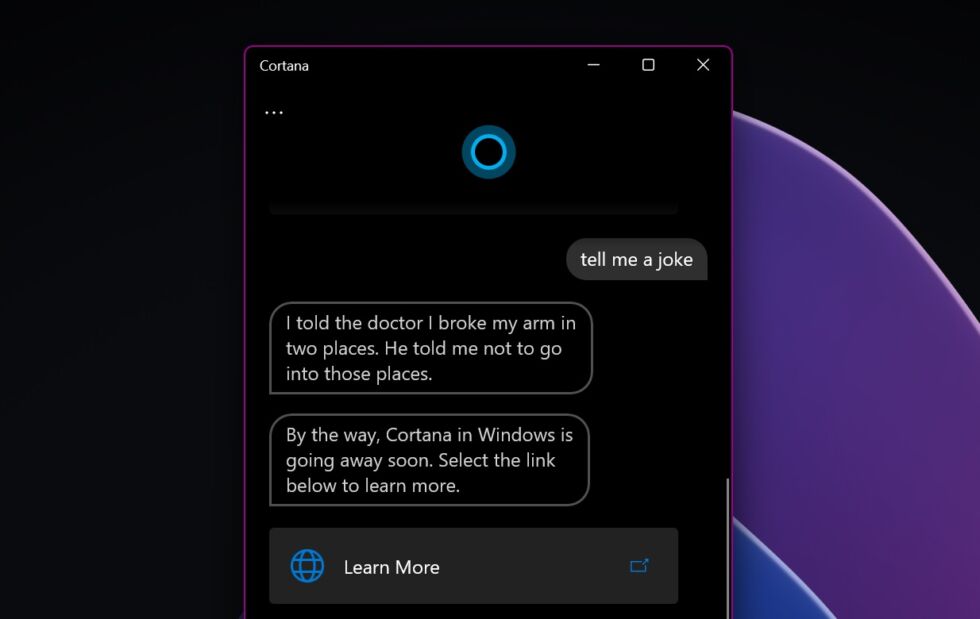
Microsoft
Microsoft is all-in on its Copilot+ PC push right now, but the fact is that they’ll be an extremely small minority among the PC install base for the foreseeable future. The program’s stringent hardware requirements—16GB of RAM, at least 256GB of storage, and a fast neural processing unit (NPU)—disqualify all but new PCs, keeping features like Recall from running on all current Windows 11 PCs.
But the Copilot chatbot remains supported on all Windows 11 PCs (and most Windows 10 PCs), and a change Microsoft has made to recent Windows 11 Insider Preview builds is actually making the feature less useful and accessible than it is in the current publicly available versions of Windows. Copilot is being changed from a persistent sidebar into an app window that can be resized, minimized, and pinned and unpinned from the taskbar, just like any other app. But at least as of this writing, this version of Copilot can no longer adjust Windows’ settings, and it’s no longer possible to call it up with the Windows+C keyboard shortcut. Only newer keyboards with the dedicated Copilot key will have an easy built-in keyboard shortcut for summoning Copilot.
If Microsoft keeps these changes intact, they’ll hit Windows 11 PCs when the 24H2 update is released to the general public later this year; the changes are already present on Copilot+ PCs, which are running a version of Window 11 24H2 out of the box.
Changing how Copilot works is all well and good—despite how quickly Microsoft has pushed it out to every Windows PC in existence, it has been labeled a “preview” up until the 24H2 update, and some amount of change is to be expected. But discontinuing the just-introduced Win+C keyboard shortcut to launch Copilot feels pointless, especially since the Win+C shortcut isn’t being reassigned.
The Copilot assistant exists on the taskbar, so it’s not as though it’s difficult to access, but the feature is apparently important enough to merit the first major change to Windows keyboards in three decades. Surely it also justifies retaining a keyboard shortcut for the vast majority of PC keyboards without a dedicated Copilot key.
People who want to continue to use Win+C as a launch key for Copilot can do so with custom keyboard remappers like Microsoft’s own Keyboard Manager PowerToy. Simply set Win+C as a shortcut for the obscure Win+Shift+F23 shortcut that the hardware Copilot key is already mapped to and you’ll be back in business.
Win+C has a complicated history

Andrew Cunningham
The Win+C keyboard shortcut actually has a bit of a checkered history, having been reassigned over the years to multiple less-than-successful Windows initiatives. In Windows 8, it made its debut as a shortcut for the “Charms” menu, part of the operating system’s tablet-oriented user interface that was designed to partially replace the old Start menu. But Windows 10 retreated from this new tablet UI, and the Charms bar was discontinued.
In Windows 10, Win+C was assigned to the Cortana voice assistant instead, Microsoft’s contribution to the early-2010s voice assistant boom kicked off by Apple’s Siri and refined by competitors like Amazon’s Alexa. But Cortana, like the Charms bar, never really took off, and Microsoft switched the voice assistant off in 2023 after a few years of steadily deprioritizing it in Windows 10 (and mostly hiding it in Windows 11).
Most older versions of Windows didn’t do anything with the Win+C, but if you go all the way back to the Windows 95 era, users of Microsoft Natural Keyboards who installed Microsoft’s IntelliType software could use Win+C to open the Control Panel. This shortcut apparently never made it into Windows itself, even as the Windows key became standard equipment on PCs in the late ’90s and early 2000s.
So pour one out for Win+C, the keyboard shortcut that is always trying to do something new and not quite catching on. We can’t wait to see what it does next.




















+ There are no comments
Add yours